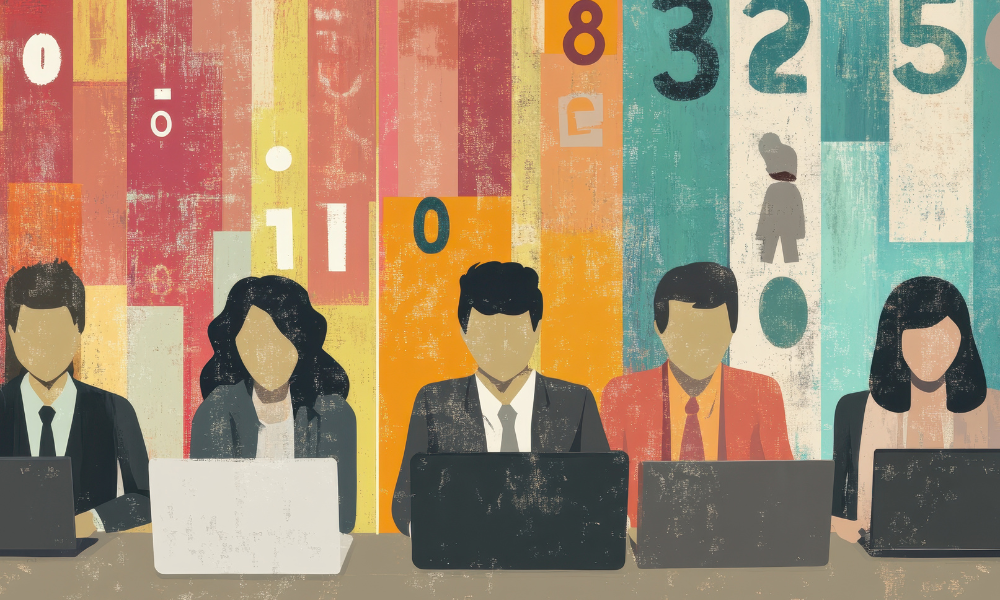‘We’ve reached the point where we must defend, promote and put forward the value of the separation of church and state’

The federal political party advocating for Québécois nationalism is seeking to apply Quebec’s ban on religious symbols to federal employees working within the province, according to a report.
Yves-François Blanchet, leader of the Bloc Québécois, announced that his party will introduce legislation in the House of Commons to extend the provisions of Bill 21 to federal public servants.
“We’ve reached the point where we must defend, promote and put forward the value of the separation of church and state as two things that are not only different but fundamentally incompatible,” Blanchet said, according to a report from the Montreal Gazette.
Passed in 2019, Bill 21 prohibits public servants deemed to be in positions of authority – including teachers, police officers and judges – from wearing religious symbols such as the hijab, turban or kippah on the job.
Blanchet acknowledged that “not many” federal workers wear religious symbols and said those currently employed should be exempt from new rules. The number, however, is no reason not to pursue the expansion of the coverage of the ban, he said.
“They tell us that because it’s not many people, it’s pointless,” he said, according to the Montreal Gazette report. “I say, let’s turn that around: Because it’s not many people, it’s easier.”
Blanchet said the Canadian Constitution’s notwithstanding clause could be used to shield his proposed law from minority protections in the Canadian Charter of Rights and Freedoms.
In March, Quebec introduced Bill 94, which would prohibit school support staff – such as lunchroom and after-school care monitors, administrative secretaries, and volunteer librarians – from wearing religious symbols, including items like the hijab or kippa, in the workplace, according to a report by CBC. A previous report noted that the provincial government is considering doing the move.
Criticisms against ban on religious symbols
The Canadian Supreme Court has already upheld the right of Sikh Royal Canadian Mounted Police (RCMP) officers — who fall under federal jurisdiction — to wear turbans. This, however, does not deter Blanchet from pursuing the expansion of the coverage of the ban.
“This is not a question of institutions, protests, courts or judges,” Blanchet said, according to the Montreal Gazette.
“In any modern society — any society that claims to believe in equality — must accept that the wearing of religious symbols, at least for people in positions of authority, is not acceptable.”
Numerous stakeholders have also spoken against Quebec’s ban on religious symbols.
Bill 94 "potentially infringes" on individual freedoms, specifically for women working in Quebec schools, said Sol Zanetti, education critic for the opposition party Québec Solidaire.
"What guarantees secularism is what's in people's heads, not on their heads," he said in a previous CBC report. "The CAQ should lead by example and stop sending hundreds of millions of public funds to religious schools every year."
The Canadian Civil Liberties Association noted: “Bill 21 is a horrendous law that violates human rights and harms people who are already marginalized,” adding that “Bill 21 harms immigrant and racialized communities in particular.”
In 2024, the Public Service Alliance of Canada (PSAC) expressed their disappointment over the Court of Appeal’s decision to uphold Quebec’s Bill 21.
“This decision will continue to disproportionately impact Muslim women, members of the Sikh community, and other marginalized workers in the public service,” said Chris Aylward, PSAC national president.”
In 2023, chief executive officers of major corporations were encouraged to sign a pledge from the Anti-Defamation League (ADL) that aims to actively prevent antisemitism in workplaces.
An Alberta tribunal previously rejected a religious discrimination claim. And a worker’s religious discrimination complaint after he was fired for failing to comply with a mandatory vaccination policy was dismissed by the Alberta Human Rights Tribunal.
Blanchet said that Canada should also do the following, to the Montreal Gazette:
- Exempt Quebec from federal multiculturalism policies.
- Require people taking the Canadian citizenship oath in Quebec to do so with their faces uncovered.
- Change the citizenship oath to emphasize the French language, and remove references to the monarchy and religion.
- Require that the citizenship oath be taken in French when in Quebec.
- Abolish the position of Canada’s Special Representative on Combatting Islamophobia.
- Replace the House of Commons daily prayer with a secular moment of reflection.




